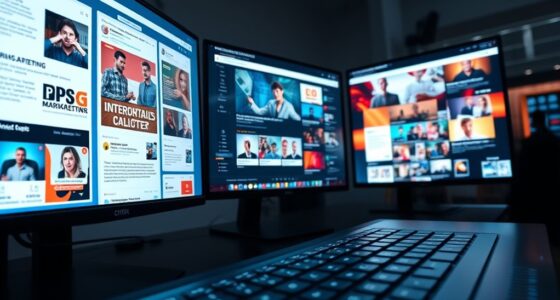An AI-generated virtual influencer just amassed a jaw-dropping 100 million followers overnight, shaking up the social media landscape. These digital personas, created with advanced algorithms and CGI, are designed to engage audiences with relatable content and consistent branding. Their rapid growth showcases a unique marketing strategy that captivates users, making brands take notice. However, this explosion in popularity raises ethical concerns about authenticity and transparency. As brands explore using virtual influencers, there's much more to discover about their impact on marketing strategies and consumer interactions in today's digital world.
Key Takeaways
- AI-generated influencers have gained immense popularity, with some amassing millions of followers rapidly, showcasing their strong engagement strategies.
- Unique narratives and tailored content resonate with audiences, boosting follower count significantly in a short time.
- Virtual influencers maintain consistent branding and messaging, appealing to diverse demographics like Gen Z and millennials.
- Real-time interactions and innovative engagement techniques enhance user experience, contributing to rapid follower growth.
What Are AI-Generated Influencers?
AI-generated influencers are digital personas crafted with artificial intelligence and CGI, designed to emulate human traits in both appearance and behavior on social media.
These virtual influencers, like Lil Miquela, have rapidly gained traction since their inception in 2016, amassing millions of followers and collaborating with major brands.
You'll find that AI influencers provide businesses with a unique marketing strategy that allows them to maintain control over their messaging.
Unlike traditional human influencers, these digital personas can be programmed and refined by teams of developers, designers, and marketers, ensuring that their content aligns with audience preferences.
With over 100 active AI influencers as of October 2023, it's clear that this trend is reshaping how brands engage with consumers on various social media platforms.
Advantages of Virtual Influencers

Virtual influencers bring a host of advantages that enhance brand engagement and streamline marketing efforts.
With AI virtual influencers, you get consistency and control in brand messaging, ensuring your content aligns perfectly with your company's image. This eliminates the risk of controversies often associated with human influencers. Their 24/7 availability means you can engage with your audience anytime, boosting customer interaction and responsiveness.
Cost-effectiveness is another major benefit. You'll only need to make a one-time investment without ongoing expenses related to travel, accommodations, or personal management.
Virtual influencers also offer incredible customization capabilities. They can adapt seamlessly to various marketing campaigns and target demographics, creating tailored digital content that resonates with specific audiences.
Moreover, the creativity and innovation of AI-generated influencers allow you to explore unique concepts and storytelling methods that traditional influencers mightn't deliver.
Challenges and Ethical Dilemmas
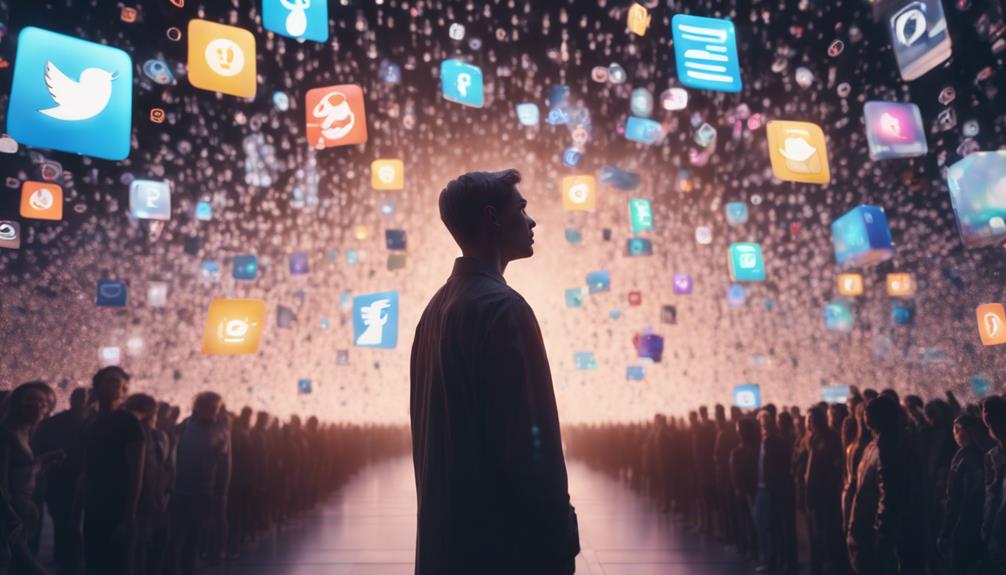
As you explore the rise of AI-generated virtual influencers, you can't ignore the challenges of authenticity and transparency.
Many people crave a genuine connection with influencers, which makes it tough for AI personas to resonate.
Plus, brands face the responsibility of clearly disclosing an influencer's AI nature to maintain trust and avoid misleading their audience.
Authenticity Concerns
Concerns about authenticity loom large as many feel AI influencers lack the genuine connection that human personalities provide. With 48% of social media users expressing skepticism, the rise of AI-generated influencers raises significant ethical dilemmas. Critics argue these digital personas exacerbate unrealistic beauty standards, impacting body image and societal norms.
Consider these points:
- AI influencers often lack the emotional depth that resonates with audiences.
- Their curated perfection can distort perceptions of beauty and success.
- Many parents worry about the negative influence on their children's self-esteem.
These challenges highlight the need for greater transparency in how AI-generated content is presented. As audiences seek real connections, the absence of human flaws in these influencers can lead to feelings of isolation and distrust.
The digital landscape demands that we question whether these AI figures can genuinely represent the diverse experiences and identities of our society. As you navigate this evolving space, it's important to critically assess the implications of embracing AI influencers in our daily lives.
Transparency Requirements
Maneuvering the landscape of AI influencers demands a clear understanding of transparency requirements, as many users feel disconnected from these digital personas. With nearly half of social media users expressing trust issues, it's essential for brands and platforms to establish clear guidelines. Proposed legislation aimed at labeling AI-generated content is a step toward rebuilding that trust. Over 12,000 parents have already petitioned for better disclosure on platforms like TikTok, showcasing public demand for transparency.
Brands face significant ethical dilemmas when using AI influencers. If they fail to disclose a virtual influencer's nature, they risk backlash and erosion of consumer trust. Additionally, the potential for misinformation looms large, as undisclosed AI personas can perpetuate unrealistic beauty standards and misrepresent reality.
To navigate these challenges, brands must adopt transparent marketing practices that clearly communicate the artificial nature of their influencers. This approach not only fosters trust but also addresses concerns about the impact of AI-generated content on societal norms. By prioritizing transparency, you can help mitigate criticism and build a more authentic connection between consumers and these digital personas.
Key Players in the Market
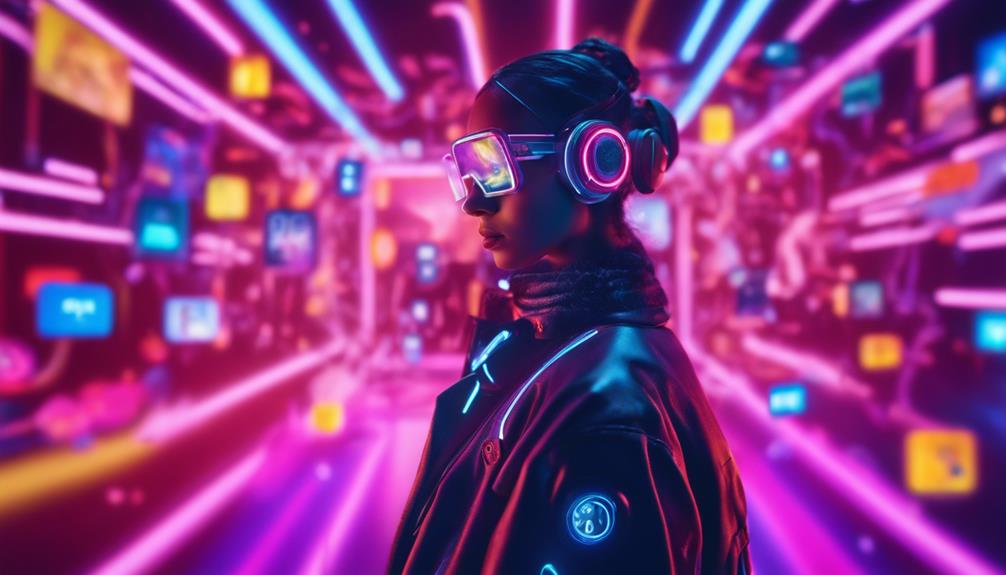
The landscape of AI-generated influencers features prominent figures like Lil Miquela, Shudu, and Imma, each making significant waves in the fashion and beauty industries.
These digital personalities are revolutionizing influencer marketing, partnering with major fashion brands, and capturing the attention of millions on social media.
Here are some key players in the market:
- Lil Miquela: With over 3 million followers, she's collaborated with brands like Prada and Calvin Klein.
- Shudu: The world's first digital supermodel, known for her work with Balmain and Fenty Beauty, has around 200,000 followers.
- Imma: This Japanese virtual influencer has gained traction in fashion, boasting over 300,000 followers.
As the popularity of virtual influencers grows, AI modeling agencies like The Clueless emerge, facilitating brand partnerships and expanding opportunities for these digital personalities.
Your understanding of these key players can enhance your strategy in influencer marketing, whether you're a brand or an aspiring social media influencer.
Regional Influencer Highlights
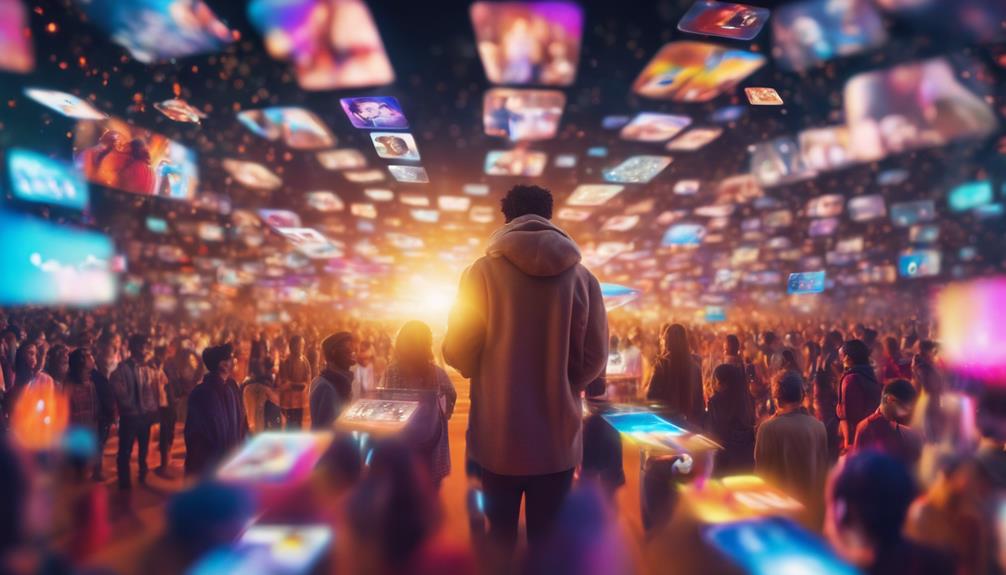
As brands explore new avenues in influencer marketing, regional virtual influencers like Lu do Magalu and Aitana Lopez are emerging as powerful forces that resonate deeply with local audiences. These digital influencers create engaging content tailored to their specific markets, showcasing the benefits of localized content.
| Influencer | Key Focus Areas |
|---|---|
| Lu do Magalu | Shopping guidance, tech insights |
| Aitana Lopez | Fitness, fashion, emotional storytelling |
| Imma | Art, fashion, and culture |
| CarynAI | Personalized interaction |
By tapping into regional characteristics, these influencers notably enhance customer engagement and foster brand loyalty. Lu do Magalu, for instance, interacts with millions by providing practical shopping tips that resonate well with Brazilian consumers. On the other hand, Aitana Lopez connects through her unique storytelling approach, appealing to audiences across Europe.
This localized strategy not only captivates followers but also drives meaningful conversations around brands. As you consider influencer partnerships, recognize the potential of regional influencers to create authentic connections and deliver impactful marketing outcomes.
Impact on Marketing Strategies
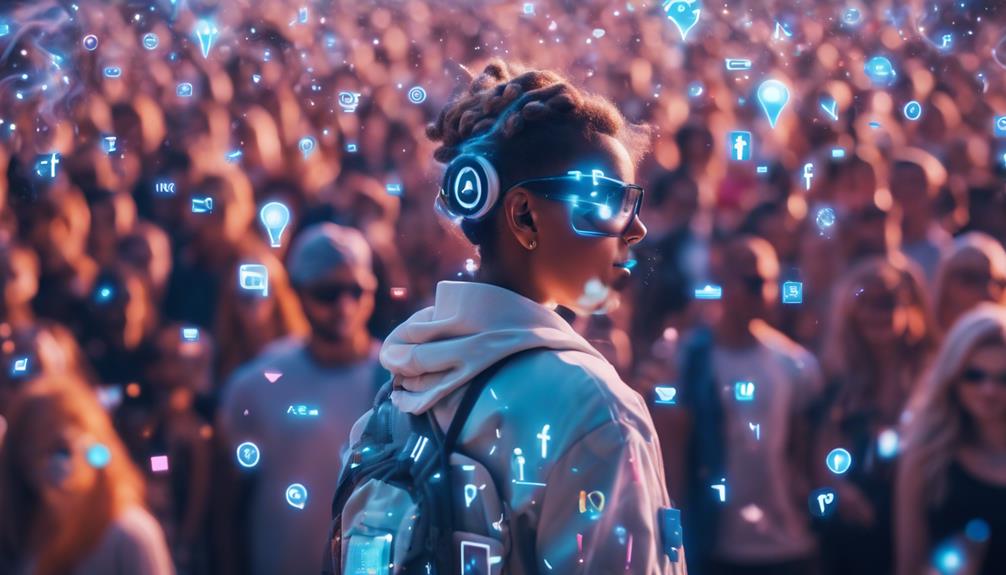
AI-generated virtual influencers are changing the game in marketing strategies by shifting how brands engage with their audiences.
You'll notice enhanced reach and more precise targeting, making it easier to connect with specific demographics.
Plus, the cost-effective nature of these AI personas allows you to maximize your marketing budget without sacrificing impact.
Shift in Brand Engagement
Brands increasingly embrace AI influencers to reshape their marketing strategies and enhance engagement with consumers. By leveraging digital personas, companies can connect with audiences in ways that traditional marketing can't. The rise of AI influencers marks a significant shift in brand engagement, allowing for real-time interactions and personalized content that resonate with tech-savvy consumers.
Consider the benefits:
- Consistent Messaging: AI influencers maintain a steady tone and style, ensuring brand voice consistency.
- Cost-Effectiveness: Lower operational expenses mean brands can allocate more budget to creative campaigns.
- Innovative Storytelling: AI can craft engaging narratives that captivate audiences and foster loyalty.
This evolution in marketing strategies reflects a new era where brands rethink traditional approaches. By integrating AI-generated personas, you can enhance visibility and foster deeper relationships with consumers, ultimately increasing brand loyalty and engagement.
The future of marketing lies in these innovative strategies that leverage AI's unique capabilities.
Enhanced Target Audience Reach
Leveraging the broad appeal of virtual influencers can considerably expand your marketing reach, allowing you to connect with diverse audience segments effectively.
With the rise of AI technology, these digital personas can analyze audience preferences in real-time, making them an invaluable asset in your digital marketing strategy.
As you tap into the vast follower base of virtual influencers, you can engage specific demographics like Gen Z and millennials, who are increasingly favoring social media over traditional media. This targeted approach not only enhances your target audience reach but also guarantees that your brand's message resonates with the right people.
Moreover, virtual influencers can seamlessly integrate into various marketing campaigns, enabling you to craft tailored content that aligns with current trends and consumer interests. Their ability to adapt quickly to audience feedback means you can maintain relevance and boost engagement.
Brand collaborations with these AI-generated influencers present exciting opportunities for reaching audiences at scale. By incorporating virtual influencers into your strategy, you can maximize impact while steering through the evolving landscape of digital marketing efficiently.
Embrace this innovative approach to elevate your brand's presence!
Cost-Effective Marketing Solutions
Expanding your reach with virtual influencers not only enhances audience engagement but also opens up cost-effective marketing solutions that can reshape your overall strategy. By leveraging AI tools, you can create digital personas that resonate with your target market without the hefty price tag associated with human influencers.
Here are some key benefits of using virtual influencers for cost-effective marketing:
- Reduced Costs: Eliminate travel and accommodation expenses typically linked to human influencers.
- Consistent Messaging: Generate high-quality, tailored content that maintains brand consistency across all campaigns.
- Creative Flexibility: Customize your influencer's traits and narratives to align perfectly with your marketing goals.
With the marketing landscape projected to shift towards these AI-generated figures, embracing virtual influencers allows you to maximize your return on investment while ensuring creative and engaging campaigns.
This strategy not only enhances audience engagement but also positions your brand at the forefront of innovative marketing solutions.
Social Activism and Responsibility

AI-generated virtual influencers can play an important role in social activism by engaging audiences with pressing issues and fostering meaningful conversations around causes like sustainability and diversity.
With their vast digital reach, these influencers amplify messages that resonate with millions, addressing topics such as Black Lives Matter and LGBTQ+ rights. By doing so, they not only raise awareness but also encourage followers to take action.
Brands are increasingly recognizing the power of virtual influencers in driving social responsibility initiatives. They leverage these digital personalities to connect with tech-savvy audiences, promoting values that align with consumers' expectations for ethical practices.
However, as this trend grows, there's an urgent need for transparency. Consumers want to know that the influencer's advocacy is authentic and not just a marketing gimmick.
Moreover, while AI influencers can break traditional norms by showcasing diverse character designs, they can also inadvertently perpetuate unrealistic beauty standards.
It's essential to hold these digital entities accountable, ensuring they contribute positively to social activism. As consumers, staying informed and demanding responsibility from both brands and influencers is critical for fostering a more ethical digital landscape.
Future Trends in Virtual Influencing

As technology evolves, virtual influencers will become even more interactive, creating personalized experiences that engage audiences like never before.
With advancements in AI, these influencers will boast an increasingly realistic appearance, making them more relatable and appealing. You'll see brands integrating virtual influencers into their marketing strategies, tapping into the projected market growth that could reach billions by 2025.
Here are some future trends to watch for:
- Real-time interactions: AI will enable virtual influencers to engage in real-time conversations, responding to audience queries and comments.
- Immersive VR experiences: Expect virtual influencers to host brand interactions in digital spaces, enhancing engagement through immersive environments.
- Unique character narratives: Continuous AI innovation will facilitate the creation of distinct traits and storylines, enriching the influencer's persona.
As you follow the evolution of virtual influencers, keep an eye on these trends, as they'll reshape the landscape of influencer marketing and audience engagement.
The Role of AI in Content Creation

With the rise of virtual influencers, AI plays a pivotal role in shaping content creation by crafting unique personas that resonate with audiences across social media platforms. These AI-generated characters are created using advanced algorithms and 3D modeling techniques, allowing them to closely mimic human influencers in both appearance and behavior.
The digital nature of AI influencers enables them to produce high-quality content consistently, eliminating downtime often associated with human creators. By leveraging data analysis, AI can tailor messaging and style to align with audience preferences and current media trends, ensuring maximum engagement.
Moreover, brands benefit from the ability to rapidly customize their virtual influencers for diverse campaigns and target demographics. This adaptability means that no matter the marketing strategy, AI-generated content can be adjusted seamlessly to meet specific needs.
As AI continues to evolve, its role in content creation will only grow, offering brands reliable and innovative solutions that keep pace with the fast-moving digital landscape. By embracing AI, you're not just enhancing your content; you're also stepping into the future of digital marketing.
Audience Reception and Engagement

Audience reception of virtual influencers has skyrocketed, enchanting millions through their lifelike design and engaging content. These AI-created personalities blur the line between real and virtual, mesmerizing audiences like never before.
As you explore this phenomenon, you might notice several key factors contributing to their popularity:
- Relatable Content: Followers connect with the influencer's lifestyle and interests.
- Innovative Technology: Many are intrigued by the advanced AI techniques used to create a human-like persona.
- Brand Promotion: The influencer effectively promotes brands, making product recommendations that resonate with audiences.
With over 60% of new followers expressing interest in the technology behind this virtual being, it's clear that audiences might be fascinated by the blend of creativity and realism.
Furthermore, over 75% of surveyed followers indicated they'd consider purchasing products endorsed by this influencer, showcasing the strong potential for brand engagement.
As these virtual personalities continue to grow, they'll likely redefine how brands connect with consumers in an increasingly digital world.
Frequently Asked Questions
Who Is the AI Influencer With Millions of Followers?
You might be curious about the AI influencer with millions of followers. It's an innovative digital character, gaining popularity through engaging content that resonates with a diverse audience, blending fashion, lifestyle, and social activism seamlessly.
Can You Really Make Money With an AI Influencer?
Yes, you can make money with an AI influencer. They generate income through brand collaborations, sponsored posts, and affiliate marketing, often yielding higher engagement rates, which leads to increased visibility and profitability for your brand.
Who Is the AI Generated Instagram Influencer?
Ever wondered who could charm millions with just pixels and algorithms? The AI-generated Instagram influencer, known as Felicity, captivates audiences with her vibrant personality, engaging content, and personalized interactions, redefining how we connect online.
Which AI Model Makes $11000 a Month?
You might be curious about which AI model makes $11,000 a month. These models thrive on brand partnerships and promotions, leveraging their vast followings to generate substantial revenue through sponsored content and merchandise sales.
Conclusion
As you step into the world of AI-generated influencers, it's clear they're not just a passing trend; they're rewriting the rules of engagement.
With 100 million followers in a blink, these virtual personas blend creativity and technology like never before.
However, you must navigate the ethical waters and consider their impact on society.
The future of influencing is here, and it's a digital tapestry woven from innovation and responsibility—so don't miss the chance to be part of it!




